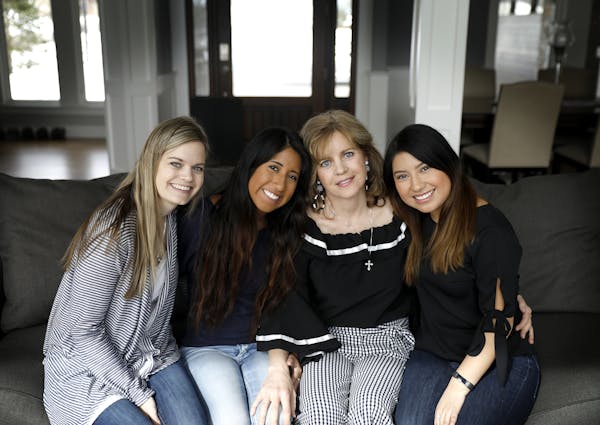The Minneapolis Foundation raised a record $100 million in charitable gifts last year as Minnesotans increasingly used the foundation's donor-advised funds to give to good causes.
It's a jump of 33 percent from the year before and more than double what the foundation was averaging five years ago, said President and CEO R.T. Rybak, sharing preliminary numbers for its fiscal year ending March 31. "Not only have our donations increased, but so have the gifts that our donors have made to the community," he said.
The foundation channeled $70 million into the community in 2017. Over the years, those donations have gone to educational institutions, environmental conservation, arts and community health. Surging interest in donor-advised funds and awareness generated by the foundation's centennial celebration in 2015 are fueling the growth, Rybak said. The foundation has also made a point of marketing itself to financial advisers, accountants and attorneys who refer clients to become donors.
"We get a significant amount of referrals. Probably close to 60 percent of our referrals come from professional advisers," said Ellen Goldberg Luger, the foundation's senior vice president for philanthropic services.
Donor-advised funds have attracted interest from people interested in charitable giving in recent years. Donors — middle-class and wealthy individuals, families and business — give assets, including stocks, to a foundation. They get the immediate tax break and then work with the foundation to make recommendations on how to distribute those funds to charity over time.
Financial institutions, including Goldman Sachs and Fidelity, now have charity arms that manage donor-advised funds.
Local emphasis
The Minneapolis Foundation manages more than 1,200 charitable funds. It vets nonprofits and helps donors identify community needs.
"People put money in and they work with our team over a period of months or years," Rybak said.
The foundation hosts dozens of group sessions each year exploring pressing community issues and presenting nonprofits and agencies working on solutions. Topics range from health and wellness, and racial equity to school safety. Those interactions create a "giving community" who share ideas and impact, Rybak said.
The Women's Foundation of Minnesota has also seen an uptick in interest in its more modest donor-advised fund program, which it started in 1999.
"They are increasingly popular as a vehicle for donors to think about their charitable assets and how to plan versus scrambling at the end of the year," said Amanda Storm Schuster, vice president of advancement at the Women's Foundation. "It's almost a charitable savings account they can build and grant out over time."
The Minneapolis Foundation offers donors expertise in the community, said Luger. For instance, it responds quickly when donors ask how they can help after disaster strikes or issues emerge.
"You have a national issue like safety in schools, donors can come in and hear about the issue locally. We can connect with [organizations] here," Luger said.
In 2016, nearly three-quarters of the $57.9 million given away through the Minneapolis Foundation went to Minnesota organizations. The foundation gave money to 2,400 local, national and global organizations, including $1.67 million to the University of Minnesota Foundation McNamara Alumni Center, $629,000 to the Walker Art Center and $1.17 million to the Greater Twin Cities United Way.
Rybak said while there is some overlap in donors, they are not in direct competition with the United Way, which has faced revenue declines in recent years. He said United Way's advocacy and strategic deployment of assets in the community is still needed.
'Easy to make gifts'
Michelle Pett and her husband, Eric Britt, opened a donor-advised fund at the Minneapolis Foundation last fall.
"Fortune smiled upon us in 2017. We ended up having some stock squirreled away," Pett said. "We ended up with this lump sum that we never anticipated."
Pett, a freelance theater producer already making donations to the arts community, immediately knew she wanted to go through the Minneapolis Foundation and she was pleased that they were so welcoming to middle-class donors.
"It's very easy to make gifts," Pett said. "You have a dashboard to see your giving priorities."
One unexpected benefit has been the interaction with other donors and exposure to pressing community issues.
"It's opened up our network and our eyes to needs in this community," Pett said. "There are organizations addressing them and helping solve problems in the community."
Shannon Prather • 612-673-4804

Cigarettes at $15 per pack? Minneapolis might do it.
![St. Louis County Board approved a plan to distribute $24 million in CARES funding, including $6 million to be distributed to small businesses. ] ALEX](https://arc.stimg.co/startribunemedia/ED62G7Y2RWISNRUZQRT3ZTJVHU.jpg?h=91&w=145&fit=crop&bg=999&crop=faces)
Duluth man sentenced to 40 years for role in drive-by shooting that killed 19-year-old

